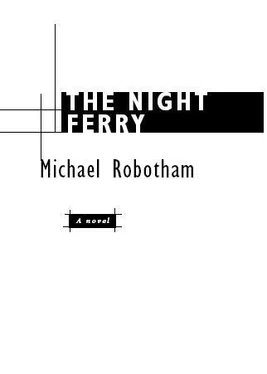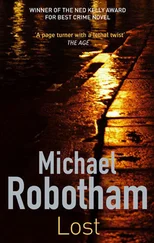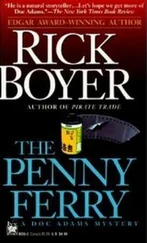She takes down the name of our hotel and promises to leave a message.
“If you find Samira, be careful with her. When she finds out about her brother she will hurt in places where it matters most.”
“You think we’ll find her?”
She kisses my cheeks. “There is always a way from heart to heart.”
Back at the Red Tulip I call DI Forbes. Straightaway he demands to know where I am. A quiet inner voice tells me to lie. It’s a voice I’ve been hearing a lot lately.
“Have you interviewed the truck driver?” I ask.
“Are you in Amsterdam?” he counters.
“What did he tell you?”
“You can’t just leave the fucking country. You’re a suspect.”
“I wasn’t made aware of any restrictions.”
“Don’t give me that crap! If you’re running a parallel investigation I’ll have you up on disciplinary charges. You can forget about your career. You can forget about coming home.”
I can hear the annoying click in his voice. It must drive his wife mad—like living with a human metronome.
Eventually he calms down when I tell him about Hassan. We swap information. The truck driver has been charged with manslaughter, but there is a complication. U.K. immigration officers received a tip-off about a suspect vehicle before the roll-on, roll-off ferry docked in Harwich. They had the license number and were told to look for a group of illegal immigrants.
“Who provided the tip-off?”
“The Port Authority in Rotterdam received an anonymous phone call two hours after the ferry sailed. We think it came from the traffickers.”
“Why?”
“They were setting up a decoy.”
“I don’t understand.”
“They were sacrificing a small number of illegals who would tie up resources. Customs and immigration would be so busy that they wouldn’t notice a much larger shipment.”
“On the same boat?”
“Two articulated lorries haven’t been accounted for. The companies listed on the freight manifest are nonexistent. They could have smuggled a hundred people in the back of those trucks.”
“Could the air vents have been closed deliberately—to create a more effective decoy?”
“We may never know.”
“I don’t want a health club, I want a gym,” I tell the desk clerk who doesn’t appreciate the difference. I shadow box and she backs away. Now she understands.
I know a little about gyms. In our last year at Oaklands, I convinced Cate to take karate classes with me. They were held in a grungy old gym in Penwick Street, mostly used by boxers and old guys in sleeveless vests whose veins would pop out of their heads when they were on the bench press.
The karate instructor was Chinese with a Cockney accent and everyone called him “Peking,” which got shortened to “P.K.,” which he didn’t seem to mind.
There was a boxing ring and a weight-training room with mirrors and a separate annex with mats on the floor for karate. P.K. spent the first few lessons explaining the principles behind karate, which didn’t particularly interest Cate. “The mental discipline, physical training and study help build respect toward our fellow man,” he said.
“I just want to be able to kick them in the balls,” said Cate.
“The two Japanese characters that make up the word ‘karate’ have the literal meaning of ‘empty hands,’” explained P.K. “It is a system of self-defense that has evolved over hundreds of years. Every move is based on a knowledge of the muscles and joints and the relationship between movement and balance.”
Cate raised her hand. “When do I learn to hit people?”
“You will be taught the techniques of counterattack.”
He then described how the word “karate” came from Mandarin and Cantonese phrases like “chan fa” and “ken fat,” which sent Cate into a fit of giggles. The literal meaning is “The Law of the Fist.” Attacks to the groin of an opponent are frowned upon by most martial arts. Karate also doesn’t approve of targeting the hip joints, knee joints, insteps, shins, upper limbs and face.
“What’s the bloody point?” muttered Cate.
“I think he means in competition.”
“Forget competition. I want to hurt their balls.”
She persevered with learning the theory but every week she pestered him with the same question: “When do we learn the groin kick?”
P.K. finally relented. He gave Cate a private lesson after the gym had closed. The blinds were drawn and he turned off all the lights except for the one over the ring.
She came out looking flushed and smiling, with a mark on her neck that looked suspiciously like a love bite. She didn’t go back to self-defense classes again.
I kept going, working my way through the belts. P.K. wanted me to go for black but I was already at the police training college.
Ruiz is on his second beer when I get to the restaurant. He’s watching the pizza chef spin a disk of dough in the air, draping it over his knuckles before launching it again.
The waiters are young. Two of them are watching me, commenting to each other. They’re trying to fathom my relationship with Ruiz. What is a young Asian woman doing with a man twice her age? I’m either a mail-order bride or his mistress, they think.
The café is nearly empty. Nobody eats this early in Amsterdam. An old man with a dog sits near the front door. He slips his hand beneath the table with morsels of food.
“She could be anywhere,” says Ruiz.
“She wouldn’t have left Amsterdam.”
“What makes you so sure?”
“Hassan was only sixteen. She wouldn’t leave him.”
“He made two North Sea crossings without her.”
I have no answer.
So far we have been trying to make inquiries without drawing attention to ourselves. Why not change our tactics? We could print up posters or place an advertisement.
Ruiz doesn’t agree. “Cate Beaumont tried to take this public and look what happened. This isn’t some seat-of-the-pants operation where someone panicked and killed the Beaumonts. We’re dealing with an organized gang—guys like Brendan Pearl.”
“They won’t expect it.”
“They’ll know we’re looking.”
“We’ll flush them out.”
Ruiz continues to argue, but he understands my point. Chance or fate will not decide what takes place next. We can make things happen.
Hotel rooms in strange cities are lonely places where the human spirit touches rock bottom. I lie on the bed but cannot sleep. My head refuses to abandon the image of a child in a Mickey Mouse T-shirt, lying next to his mother, beneath a closed air vent.
I want to rewind the clock back to the night of the reunion and further. I want to sit down with Cate and take turns at talking and crying and saying we’re sorry. I want to make up for the last eight years. Most of all, I want to be forgiven.
A mobile vibrates gently beneath my pillow.
I hear Ruiz’s voice. “Rise and shine.”
“What time is it?”
“Just gone seven. There’s someone downstairs. Lena Caspar sent him.”
Pulling on my jeans, I splash water on my face and brush my hair back in a band.
Nicolaas Hokke is in his mid-sixties with short springy gray hair and a beard. His six-foot frame helps hide the beginnings of a paunch beneath a scuffed leather jacket.
“I understand you need a guide,” he says, taking my hand in both of his. He smells of tobacco and talcum powder.
“I’m looking for a girl.”
“A girl?”
“An asylum seeker.”
“Hmmm. Let’s talk over breakfast.”
He knows a place. We can walk. The intersections are a flurry of trams, cars and bicycles. Hokke negotiates them with the confidence of a deity crossing a lake.
Читать дальше












